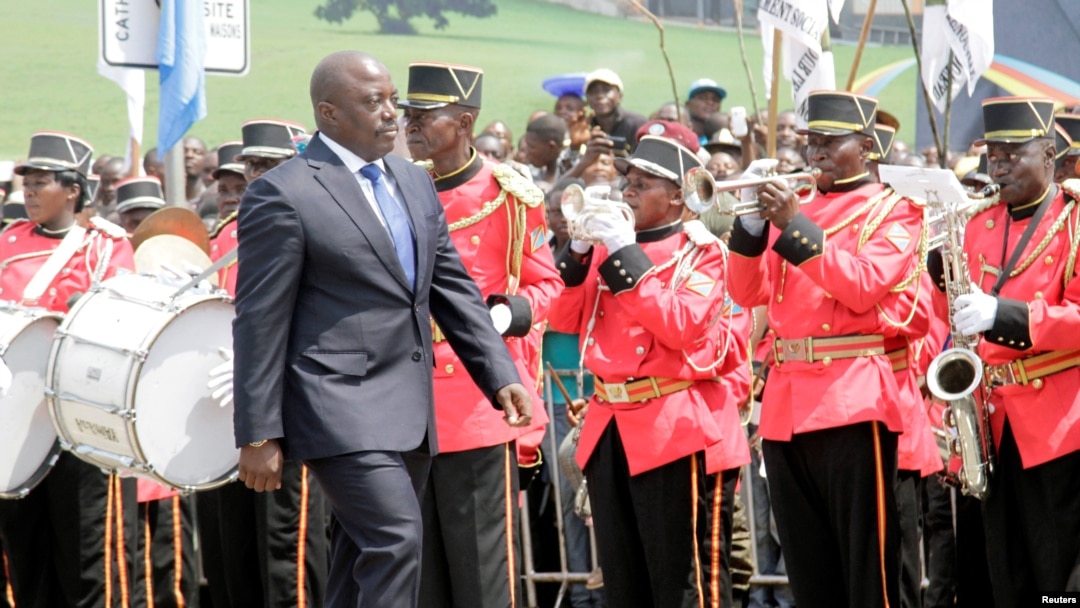In a rare public appearance, Democratic Republic of Congo President Joseph Kabila addressed parliament Tuesday one day after his government resigned in accordance with a deal that keeps him in office until elections scheduled for 2018. But much of the opposition continues to call for Kabila to step down.
President Joseph Kabila was cheered to the platform to address the DRC's National Assembly and Senate. His 45 minute speech was punctuated by frequent applause.
Kabila used a rare public address to defend an October 18 agreement between his political alliance and an opposition faction. The deal permits the president to remain in power beyond December 19, the final day of his second, and under the constitution final term, until the next election, which has been provisionally scheduled for April 2018.
Kabila’s prime minister resigned on Monday and the DRC is awaiting the formation of a new government of national unity to lead the country towards the election.
A larger opposition group, known as the Rassemblement, boycotted the deal and demanded the president step down on December 19.
During his speech, Kabila urged the Rassemblement to sign the agreement, saying it was his "most ardent wish."
Kabila aimed a warning at the opposition coalition, saying as the guarantor of Congolese institutions, he cannot allow the country to be taken hostage by a fringe of the political class.
Kabila said he would shortly appoint a new prime minister to lead the DRC to elections.
The president indirectly addressed the widespread concerns that he plans to change the constitution to allow him to stand for a third term.
Kabila said, the constitution will be respected in all its dispositions.
But for many Congolese this statement is not enough.
VOA spoke with the president of the African Association for the Defense of Human Rights, Jean-Claude Katende.
The question that needs to be answered, Katende said, is whether the speech responded to the preoccupations of Congolese people. Katende says the Congolese people think Kabila should have taken the opportunity to announce he will leave power on December 19.
Katende described the speech as "totally disconnected from the aspirations of the Congolese population."
According to Katende, Kabila’s promise to respect the constitution does not rule out the possibility of him seeking to modify the constitution.
"We remain very worried about the political future of President Kabila”, Katende said.
Kabila has led Congo since succeeding his father, Laurent Kabila, in 2001, initially as an unelected head of state and since 2006 as the elected president.


